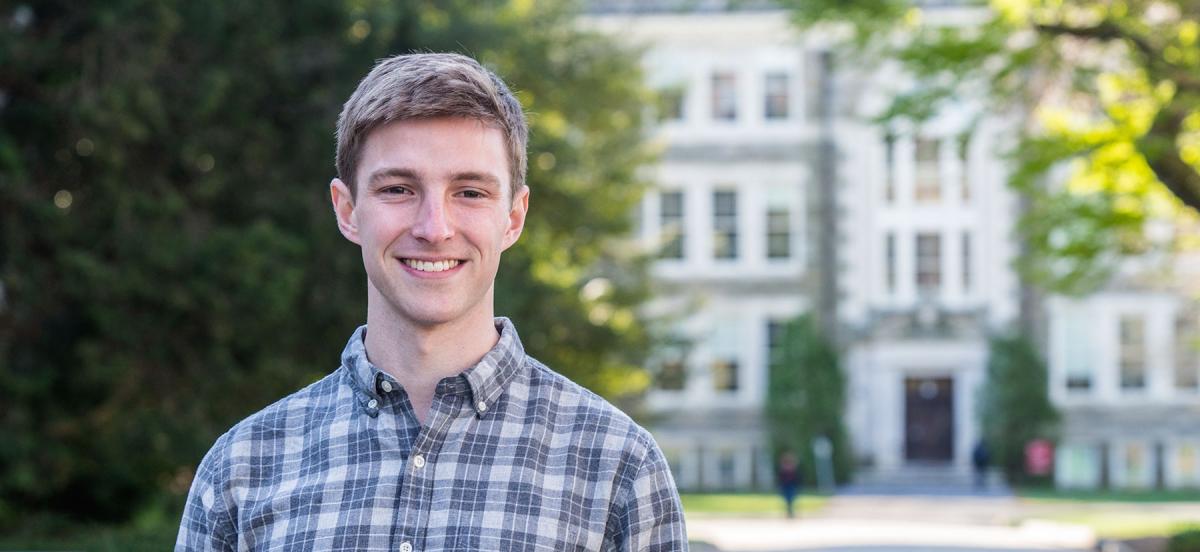Gabriel Braun ’19 Earns Fulbright Research Award

Photo of Gabriel Braun '19 on campus by Patrick Montero.
Details
The chemistry major from Seattle will spend next year at Lund University in Sweden, conducting research with his longtime collaborator Sara Linse.
Gabriel Braun fell in love with Sweden during the two summers he spent conducting research at Lund University with his Haverford thesis advisor, Karin Åkerfeldt, and her Swedish collaborator, Sara Linse. Happily, the chemistry major now gets to return to that Scandinavian nation—and Linse’s lab—thanks to a Fulbright U.S. Student Research Award.
Starting in September, he will move to Lund, a university town in the south of Sweden less than an hour from Copenhagen, to begin research with Linse, who studies peptide aggregation in the context of neurodegenerative diseases.
“I will be researching β-amyloid peptides, the aggregation of which is implicated in the pathogenesis of Alzheimer’s disease,” said Braun. “Specifically, I will be developing aggregation inhibitors, basing my work off of previous discoveries made by Professor Linse’s lab about the molecular process of this aggregation, with the goal of producing novel molecules to treat—or prevent—Alzheimer’s.”
This work is related to the chemistry research he has done at Haverford. His senior thesis, for example, is similarly focused on peptide aggregation, but in a biomaterials context. (Linse, he said, has also been an “invaluable collaborator,” on that project.)
Though the Fulbright U.S. Student program grants hundreds of study and research awards in 140 countries around the world, Braun will be one of only 10 recipients selected to go to Sweden. He is looking forward not only to returning to the lab there, but also—as a four-year member and two-year captain of the Haverford fencing team—to fencing with a local club in Lund.
“I’m looking forward to being able to continue my development as a fencer,” he said, “and I’m also excited to have the chance to interact with locals of all ages in a less formal setting through the sport.”
Eventually Braun plans to pursue a Ph.D. in chemistry or biochemistry (the latter is his concentration at Haverford), and he sees his Fulbright year not only as an exciting opportunity to live and work abroad, but also as important preparation for his future.
“I will have the opportunity to conduct graduate-level research, trying to answer the exact sorts of questions that I’d like to work on in graduate school,” he said. “Hopefully, my Fulbright experience prepares me for graduate school, while also giving me a better idea of what I want to look for in future lab experiences.”
Read more about Fords who have won fellowships, scholarships, or grants.



